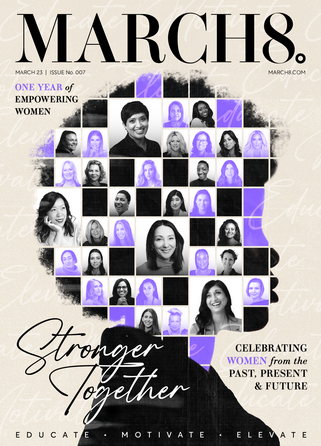The cost of living crisis disproportionately affects women

It’s no secret that everyone is counting their pennies as the cost of living increases – but some are feeling the pinch more than others, according to the National Women’s Council of Ireland.
The council’s Head of Policy, Jennifer McCarthy Flynn has recently shared that inflation has the heaviest impact on those who have the least, and that the cost-of-living crisis is disproportionately impacting women.
“I think we know that the cost-of-living crisis is impacting all of us but the evidence from the CSO is also really clear,” Jennifer said. “It is impacting the deepest on those who already have the least.”
Speaking on Newstalk Breakfast, Jennifer explained women are feeling the impact more so than men, because they are over-represented in categories hit hardest by inflation, including low-paid and precarious work and lone-parent households.
“In general, women do have fewer resources, less wealth and lower incomes and, because of their greater unpaid care responsibilities, they have less choices around paid work and greater reliance on part-time, low-paid and precarious work,” Jennifer adds.
Domestic abuse victims face the greatest challenges
Charity Women’s Aid has also recently released findings from a survey that showed women fleeing abusive relationships are among the most impacted. Women who live with or have financial links to their abuser are 73% more likely to feel the need to stay in the abusive relationship, as they’ll feel unable to leave, according to Women’s Aid.
Reasons women were unable to flee include being unable to afford ongoing living costs on a single income, the immediate costs of leaving, getting into debt, not being able to support their children, or fear that benefits would not cover increased living costs.
Farah Nazeer, chief executive of Women’s Aid said: “The current cost of living crisis has been devastating for survivors of domestic abuse. Women’s Aid surveyed women who have experienced domestic abuse in the past year and the majority said the crisis had a negative impact on their financial situation.
“We know that domestic abuse and economic abuse go hand in hand with abusers often controlling every aspect of a woman's life. The soaring energy and food costs, coupled with stagnant wages, will leave many women more vulnerable to abuse.”
Farah goes on to explain that although the UK government has made positive strides to support abuse victims, more still needs to be done, for example, by providing an Emergency Support Fund for Survivors to offset the impact of the cost of living crisis.
She also believes that the government should offer discounts on energy bills, as they can provide “life-saving support” to domestic abuse victims.
“We are quickly approaching the winter months where the crisis will only get worse,” Farah adds. “Survivors have suffered enough, having been trapped in their homes during COVID: they must be offered the help they need to support their children and to be free from abuse.”
Featured Articles
B Corporation certification has long been hailed as the gold standard of sustainability – we explore why
How does a retail investor replicate, as closely as possible, a venture capital investment strategy? Paula Tavangar of SwissBorg Ventures explores
Michelle Li shares how parents can ensure their children are taking the right steps to a more sustainable future



